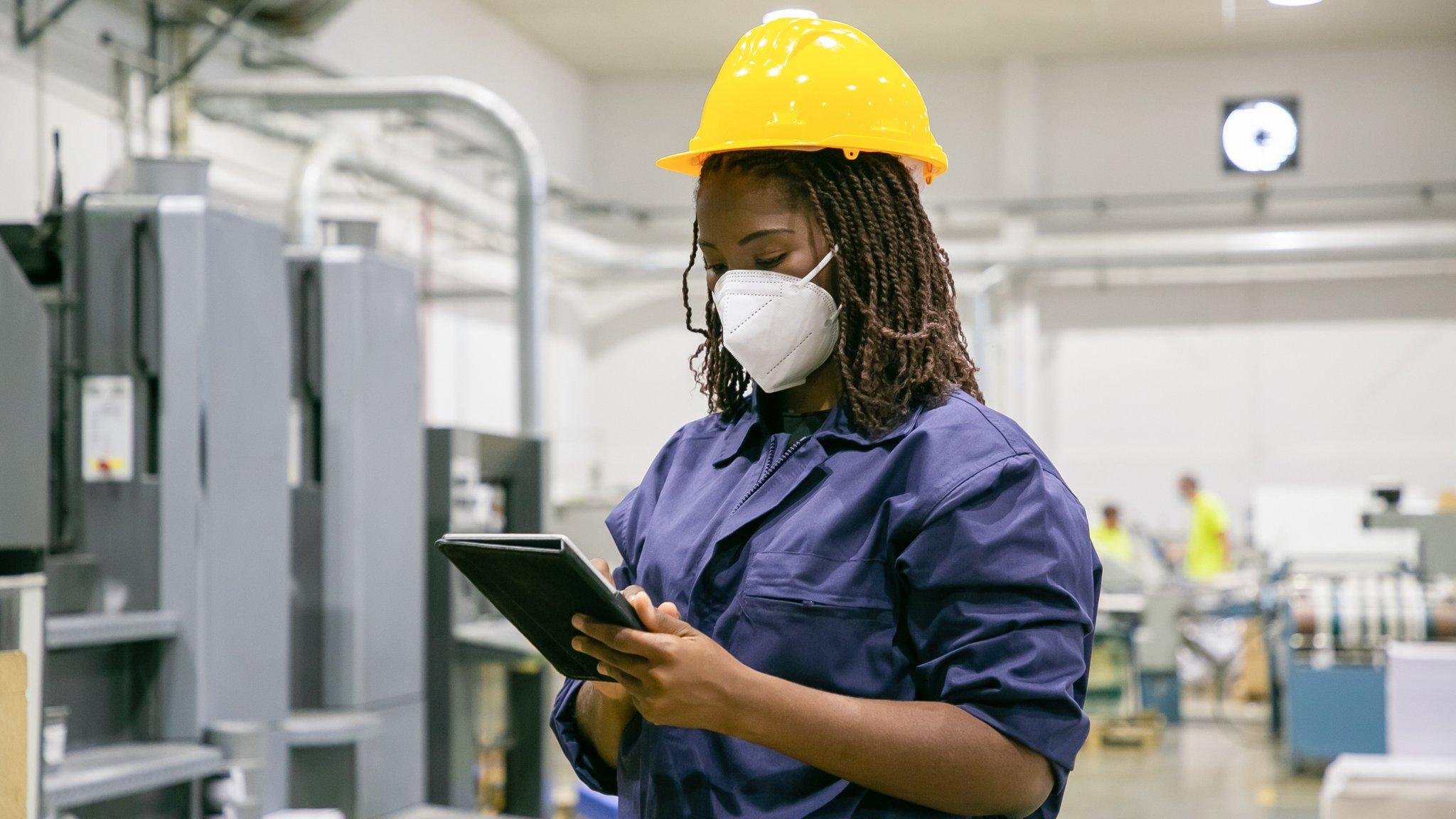Furlough: Travel company owner cashes in pension to pay staff
- Published
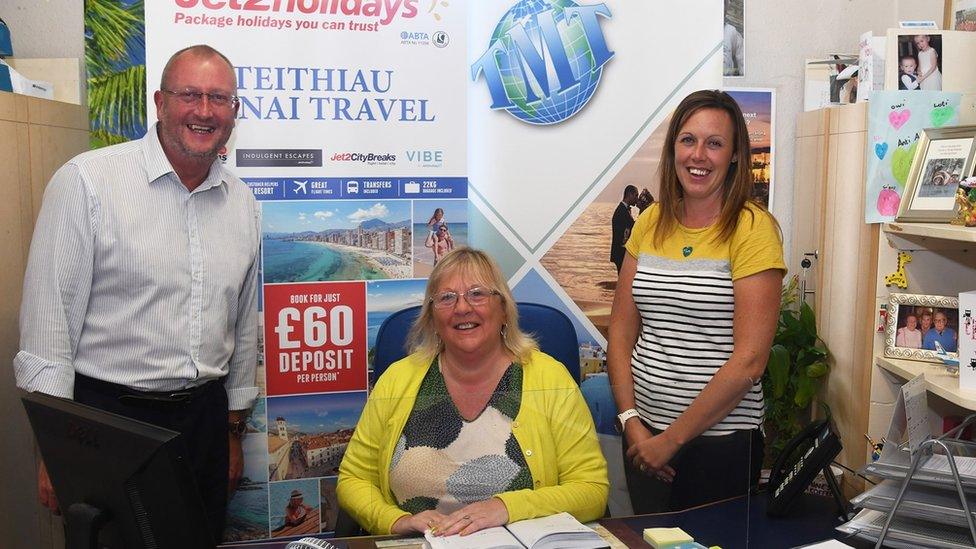
Ann Jones has run Menai Travel for 15 years
The owner of a travel agency says she has resorted to cashing in her pension to pay her staff as furlough ends.
Ann Jones, who owns Menai Travel, in Caernarfon, Gwynedd, said: "I don't want to lose my staff, they are like family and help run the business."
The UK's furlough scheme ends on Thursday.
It comes ahead of the £20-a-week boost to universal credit, introduced in response to the pandemic, is due to officially end on 6 October.
It was introduced in March 2020 and helped pay the wages of 11.6 million workers after large parts of the economy were shut down due to the coronavirus pandemic.
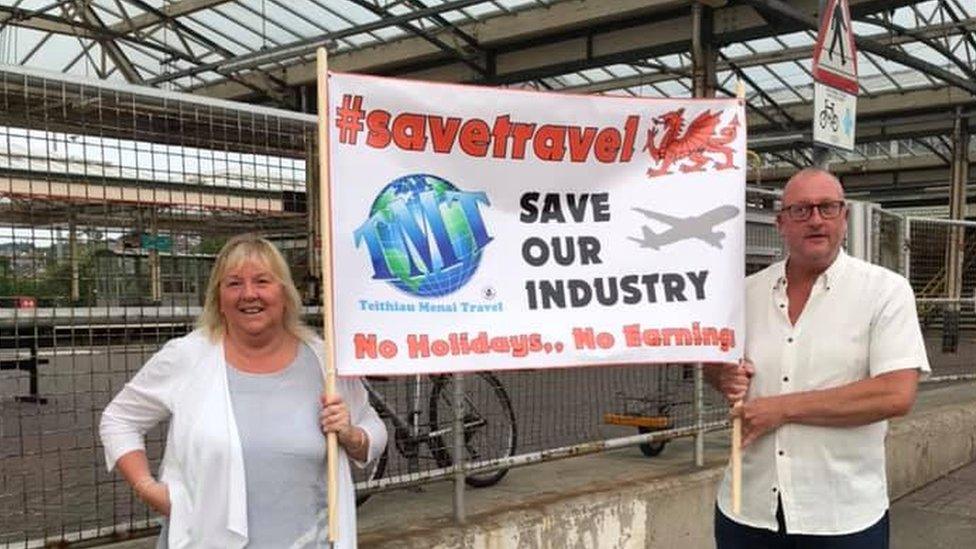
Ann Jones has been campaigning for help for her industry
At the end of July it was still supporting the incomes of about 1.6 million workers, the latest HMRC figures show.
Ms Jones told BBC Radio Wales she was "not happy" the scheme was ending and has been protesting to try and get the scheme extended throughout the winter.
She said she had barely made any revenue in the last two years.
"It's not an easy life being in the travel industry," she said.
She said if the government continued to ease travel restrictions "things will get moving again", adding: "It's going to take all winter for me to start seeing some proper revenue coming into the business."
"The government said they've given specific support for every industry - they've given it to the airlines, but not small high-street travel businesses," she said.
"It is heart-breaking for me to build up my business over the years... I just feel I'm just a number to them and not a person."
'Some anxiety'
"Difficult conversations" as furlough ends in Wales
Liz Lewis, from Creigiau, Cardiff, organises education trips abroad for a coach company and said with no sign of foreign trips for pupils returning she was uncertain about her next steps.
She said furlough had been "a lifeline", adding: "There is some anxiety around what the future holds."
"Without those high-value trips, it would be difficult to operate really and the company might not be able to afford how it's staffed at the moment."
Ms Lewis, who was on flexi-furlough working three hours a week, said she may have to take redundancy if there is no capacity for her company to bring her back full-time.

Liz Lewis, who organises education trips abroad for a coach company, said furlough had been "a lifeline"
That would have "financial implications" for her, with one daughter studying in London and the other at a ski academy in Austria.
But she said she was "optimistic things will be okay" after seeing other colleagues move into roles outside of travel after redundancy.
'Jobs Armageddon'
Jonathan Greeatorex is owner of The Hand at Llanarmon hotel near Llangollen, where all 25 staff are now back at work.
He told BBC Radio Wales Breakfast with Claire Summers furlough had been a lifeline.
"I remember those dark days in March 2020 when Rishi Sunak announced furlough and I'm not going to lie, I burst into tears with relief," he said.
"I had single mums looking at me saying 'Jonathan how am I going to put food on the table? How am I going to pay my rent?' And it genuinely was a lifeline."
He said he feared other industries, including travel were "staring down the barrel of a jobs Armageddon" as furlough ends before they have been able to financially recover from the pandemic.
Save the Children in Wales raised concerns over the impact on families and said the UK government should make the £20 increase to Universal Credit permanent.
Its head Melanie Simmonds said: "The end of the furlough scheme will spell more uncertainty and financial worry for many families across Wales. And it's coming at a time when lots of parents are facing rising energy bills, higher prices for food and transport, and the extra spending on essentials like heating and warm clothes that comes every autumn. This is all leading to a perfect storm of falling incomes and rising costs."
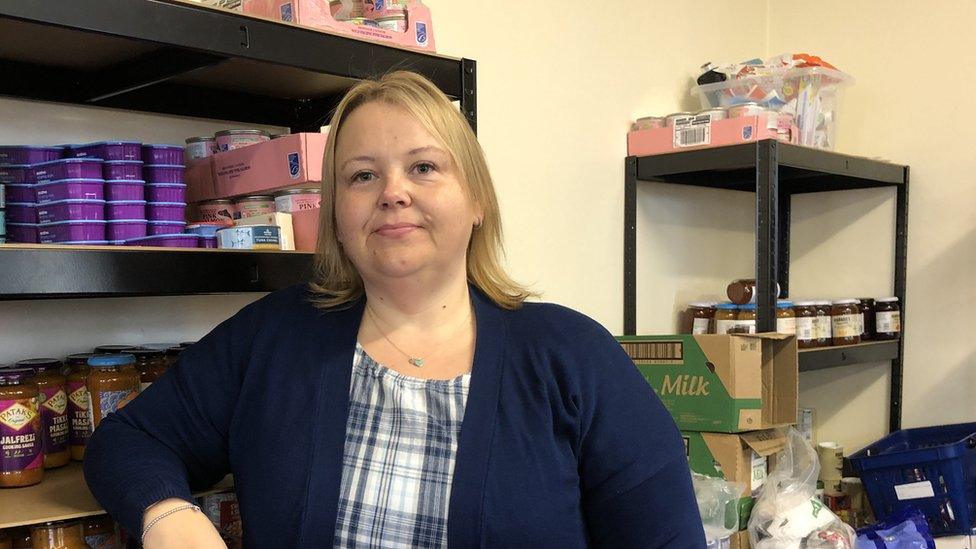
Natasha Harper, who runs a foodbank, said the cut in the universal credit uplift would hit people hard
Natasha Harper runs the foodbank and community hub at Rhyl's Good News Family church in Denbighshire.
She said they have seen an increase in demand for their support and one service user has told her: "'I'm going to be £17 worse off each month and there's nowhere else I can pinch that £17 from."
"That's the reality that we're seeing daily," she said.
She said the cut in the universal credit uplift would hit hard. "We've had families come to us and say 'we wanted to put that in our savings pot' but the reality has been they've had to use that.
"So that cut of £20 a week for us is nothing, it's a couple of coffees, but for them it's like a week's food. And these are not isolated incidents. We're going to see a massive influx of people in need."
How many people were on furlough?
HM Revenue and Customs (HMRC) figures show 54,700 were still on furlough in Wales in July - that breaks down to 25,900 women and 28,700 men.
In June last year, 378,400 jobs in Wales were furloughed and 108,000 self-employed workers were supported.
A HM Treasury spokesperson said: "We deliberately went long with our support to provide certainty to people and businesses over the summer; and that support is continuing with reduced business rates and cuts to VAT in place until March 2022, and the furlough scheme running until the end of September.
"The Universal Credit uplift was always intended to be a temporary measure to help households through the pandemic, but we are continuing to support people and ensure they have the skills and opportunities they need to get great jobs."

MONUMENTAL MRS CAMPBELL: Wales' first black head teacher celebrated with iconic statue
MOTHERS, MISSILES AND THE AMERICAN PRESIDENT: The story of Greenham told like never before

- Published31 July 2021
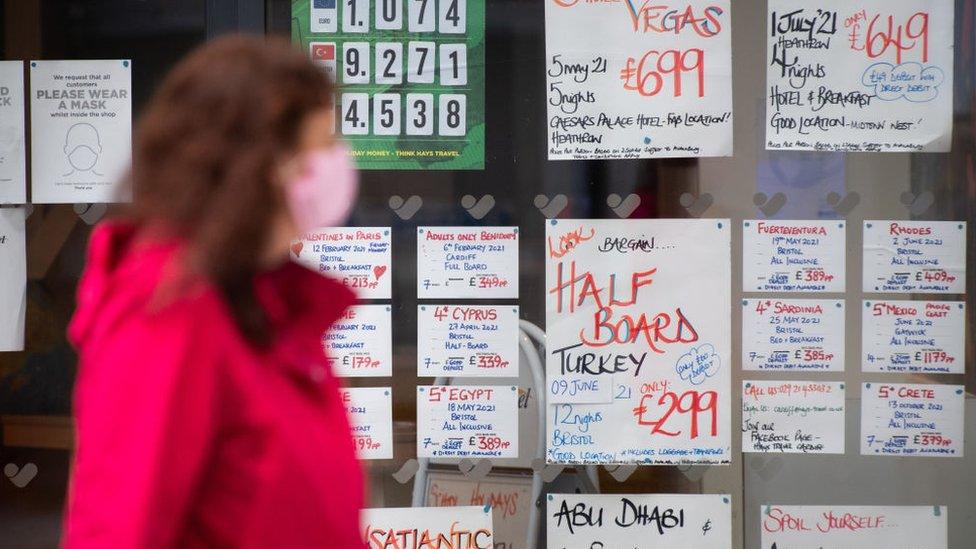
- Published1 July 2021

- Published30 September 2021
